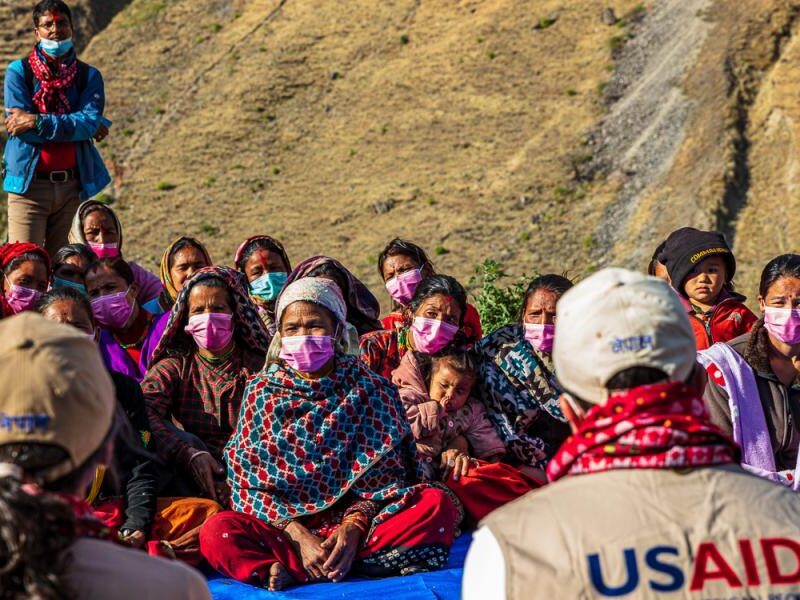When the global crisis is local
Over the past weeks the headlines have been dominated by an overwhelming number of emergencies and tragedies, most recently the plight of Afghans, an earthquake followed by a tropical storm in Haiti, and damage from floods and hurricanes across the eastern United States. Here in South Lake Tahoe, where Chad and I founded Environmental Incentives and where many of us live, our community is facing yet another summer of record-breaking wildfires. Last week, the Caldor Fire ripped 40 miles through the Sierra Nevada in seven days and forced the evacuation of our community as flames advanced on our town. More than 22,000 people fled, many of whom had already exhausted their emotional and economic resilience over the past year because of the impacts of COVID on our tourism-based economy.
Extreme drought, massive fires, and overall ecosystem change are exactly what climate modelers predicted 20 years ago when we were working on the restoration of Lake Tahoe. The complexity and urgency of climate-related work was hard to envision at the time. Today, it is impossible to ignore. Climate change is impacting all of us, and this is just the beginning. The heat dome, drought, fire, or flooding is going to come to each of our towns. And we recognize that many of the families in our communities and communities around the world who are grappling with the effects of climate change do not have the option to relocate or to maintain their livelihoods during a crisis.
As I write this, EI’s entire headquarters staff and their families are currently evacuated. We hope to return home in the next few weeks as the fire is brought under control, even though smoke will take months to dissipate. Faced with the Caldor Fire’s challenge to my community and the safety of my family and friends, I could feel overwhelmed and helpless. However, because of the nature of our work, I am empowered and inspired.
Rising to the Moment
We founded Environmental Incentives to help public and private sector decision-makers enhance the environments that sustain healthy communities. We started by helping municipal, state, and federal government agencies slow the decades-long decline of Lake Tahoe’s water quality, despite the detrimental impacts of climate change on the lake’s ecosystem. As we began to see results from our performance-driven approach it became clear that the challenges our initial clients were facing were not unique. Instead, they are shared by program managers around the world who seek to have the greatest impact with the resources they steward. Fifteen years later, this insight has helped us successfully partner with clients and communities around the world to improve the performance of conservation and development programs in diverse cultural and institutional settings.
The urgency of the climate crisis is finally inspiring governments and private actors to allocate funds and take meaningful action. To meet the urgency of the moment, we must ensure that taxpayer dollars deliver effective outcomes and actions to tackle the climate crisis and that these actions align with community values so they become sustainable solutions.
As a mission-driven consultancy, our role at Environmental Incentives is to use our strengths to help government agencies make effective investments in climate adaptation and mitigation. We enable agents of change to make evidence-based decisions, align incentives so the private sector acts in the public good, and implement effective programs that produce reportable outcomes.
Specifically, when our clients are faced with making strategic decisions, we:
- Find clarity in complex systems by using evidence and explicit theories of change,
- Reduce controversy and move stakeholders toward consensus through facilitation and communication, and
- Make seemingly irreversible decisions adaptable by increasing organizational and individual capacity to adaptively manage interventions.
Addressing the climate crisis will challenge us to apply the full suite of knowledge, experience, and insight we have developed over the last 15 years. To meet the moment, we are inspired to help clients and partners:
- Create enduring change. This is one of EI’s core principles and something we enabled USAID to accomplish with Measuring Impact.
- Apply collective action approaches that engage communities in crafting systemic solutions, an approach we used with USAID’s Sustainable WASH Systems Initiative.
- Align the incentives of multiple actors to break through institutional barriers and engage the private sector, as we have done with San Diego County and through USAID’s Economics of Natural Capital in East Africa.
- Accelerate learning about effectiveness through evidence use, decision support, and user-centered communications. This is core to our work managing USAID knowledge platforms such as Climatelinks, BiodiversityLinks, USAID.gov/energy, Learning Lab, and ProgramNet.
- Develop organizational capacity to design and implement impactful programs, which is a focus of our work under USAID’s Program Cycle Mechanism and our newest effort, the Technical, Operational, and Program Support (TOPS) institutional support contract.
The crises of the past months are a call to action. Environmental Incentives is bringing together the collective skills and perspectives of our nearly 100 staff with those of our nonprofit, academic, and private sector partners to meet the climate change imperative. Together, we will find and support the agents of change who will alter the trajectory of the human impact on global systems and enable communities to adapt to climate change impacts while sustaining their unique qualities.



